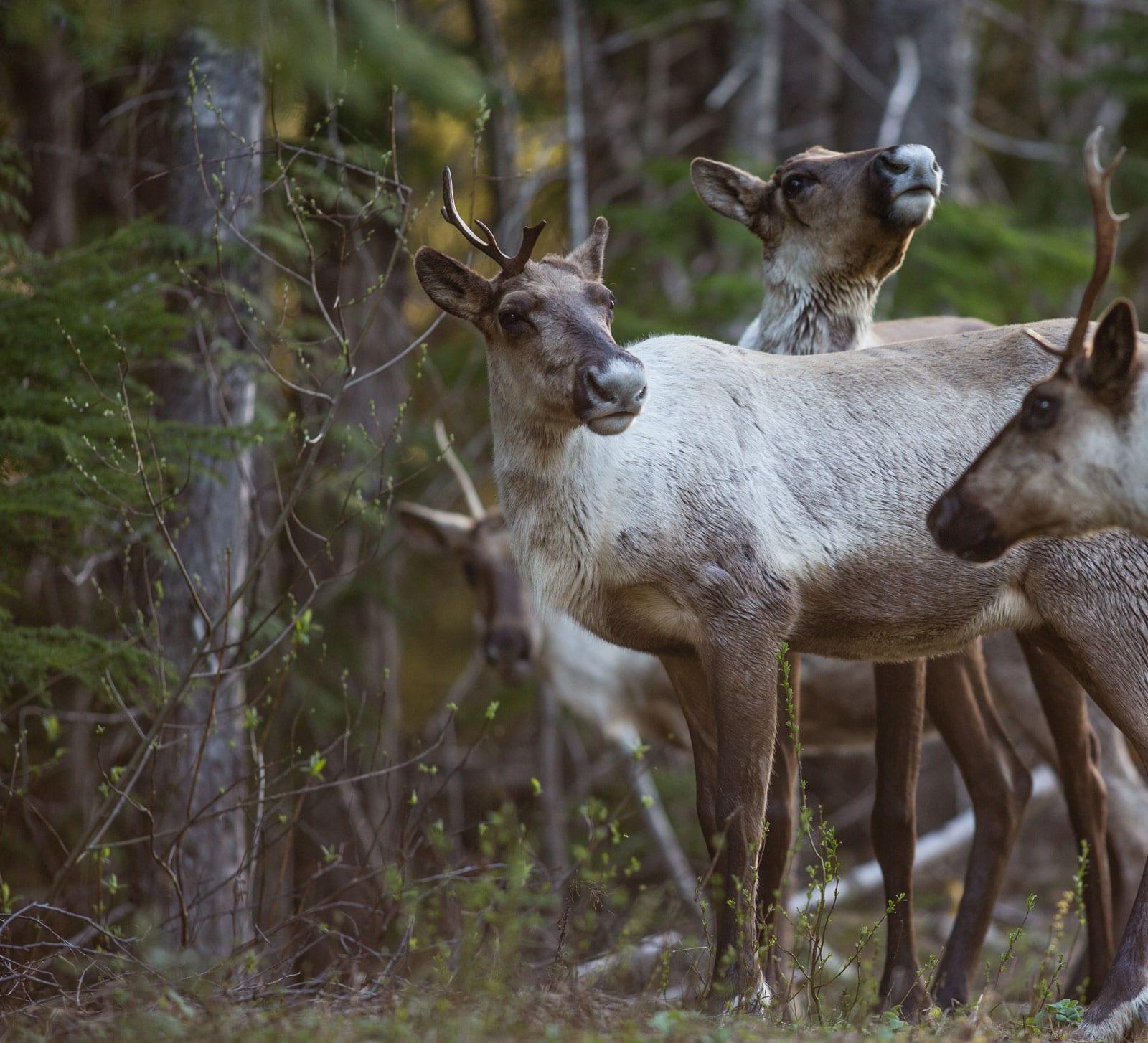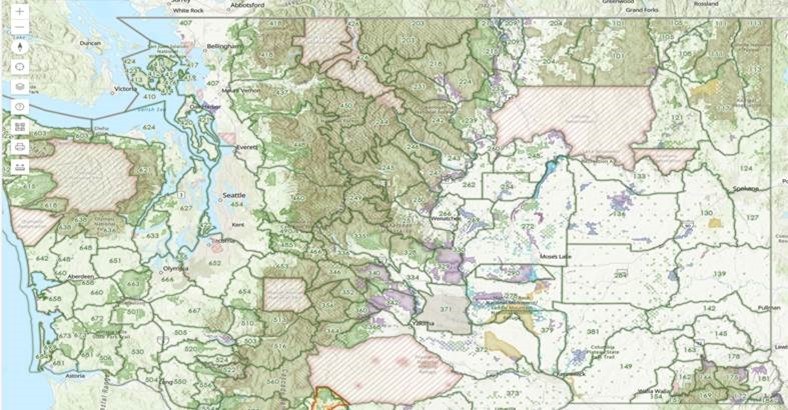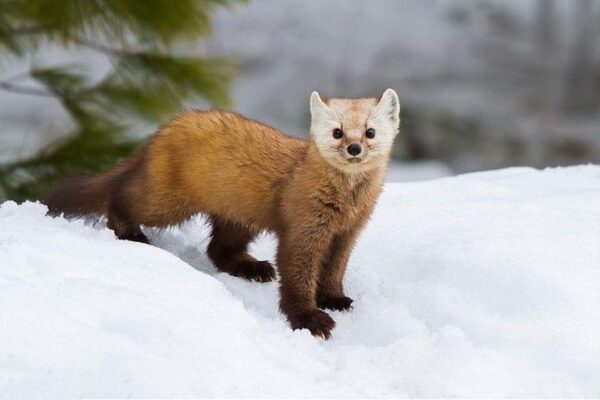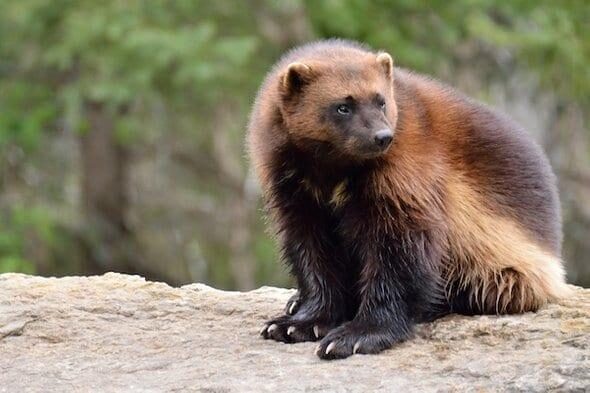How One Researcher Is Keeping Cougars At Bay In Washington
https://www.wbur.org/hereandnow/2021/03/24/tracking-cougars-washington
Read Article
KNRD Wildlife and Terrestrial Resources Division
As hunting season is now underway, we want to remind you of our Chronic Wasting Disease (CWD) testing program. In 2024, CWD was confirmed in Washington, with the first positive case identified in north Spokane. This resulted in several changes to hunting and salvaging regulations regarding testing and transporting that everyone should be aware of this season.
For more information or assistance with sampling, please email cwd@knrd.org. We have set up two self-service kiosks where you can drop off your samples:
Additional resources are available in the WDFW’s Chronic Wasting Disease Management Plan. To learn how to have hunter-harvested or salvaged deer, elk, or moose tested for the disease, visit the Chronic Wasting Disease web page.
CWD is a neurological disease that affects cervids – deer, elk, moose, and caribou – and is always fatal. Symptoms include changes or difficulty in movement, weight loss, lethargy, lack of wariness of humans, drooping ears, and excessive salivation or urination. Because the onset of obvious physical signs of CWD is delayed from the initial transmission of the disease by 18-24 months, it remains vitally important that all harvested animals, regardless of appearance, are tested to help manage the spread.
CWD is spread through direct contact and bodily fluids – like saliva, blood, and urine. It is important to note that the prions (misfolded proteins) responsible for the disease can be found in the environment even after the infected animals have left the area.
Maintaining a healthy wildlife population ensures that our rich hunting heritage can continue for future generations. Unmanaged, CWD has the potential to contribute to a long-lasting decline of wildlife in our area. We encourage you to spread the word and motivate others to have their harvested or salvaged animals tested. Together, we can actively monitor and safeguard the health of our local deer and elk populations.

For all 100 series GMUs:
Transport restrictions of dead wildlife – If you harvest a deer, elk, or moose, only the following items may be transported outside of this area:
· Meat that has been de-boned where it was harvested and is imported as boned-out meat
· Skulls and antlers (with velvet removed), antlers attached to the skull plate, or upper canine teeth (bugler, whistlers, ivories) from which all soft tissue has been removed
· Hides or capes without heads attached
· Tissue imported for use by a diagnostic or research laboratory
· Finished taxidermy mounts
New regulations specific to GMUs 124, 127, and 130:
Samples must include the whole head with at least 3 inches of the neck attached or extracted retropharyngeal lymph nodes. Samples must also be submitted to WDFW for chronic wasting disease testing within three days of harvesting or salvaging.
· Mandatory reporting of hunting activity – successful deer, elk, and moose hunters must submit the whole head of a harvested animal.
· Mandatory CWD testing for salvaged deer and elk – anyone who salvages a deer or elk must submit the whole head.
· Baiting – it is now unlawful to hunt for deer, elk, and moose in this area using any type of bait placed, exposed, deposited, distributed, scattered, or otherwise used for the purpose of attracting deer or elk with the intent to hunt them; or natural or synthetic scents that contain or are derived from cervid urine and glandular extracts.
Submit any harvested or salvaged animal for testing. KNRD has set up two self-service kiosks where you can drop off your samples:
The Pend Oreille River drainage and Selkirk Mountains provide habitat for the fish and wildlife that sustained the Kalispel people since the beginning. In this ever changing modern we must do our best to conserve the foundation of our culture. These wild places and cold streams bring life. Using modern technology we are able to invest wisely into restoration projects that will restore habitat across the landscape.

The Kalispel Tribe in cooperation with the Washington State Department of Fish and Wildlife Law Enforcement and the Steven’s County Sheriff’s Office is conducting research on cougar behavior and modification through the use of hazing/aversive conditioning. This project will include the use of trained tracking dogs to capture cougars and fit them with GPS tracking collars, then will require several recapture events to study modifications to their behavior over the course of the project. The goal of this project is to better understand how cougars respond to human/dog interactions and if they “learn” to avoid people and pets.
If you encounter the dogs while they are at work, please do not approach them or attempt to tether them. The dogs are friendly and well-trained and are equipped with GPS based tracking collars to help the handlers locate them quickly.
If you have more specific questions about this research project or if you encounter a collared cougar please report the sighting to the project biologist, Bart George, at (509) 671-6149.
Studying these reclusive predators is challenging. KNRD Biologists utilize bait lures and trail cameras to capture images and DNA that can help us better understand how these animals are using the landscape.

The Fisher is a small, carnivorous mammal native to North America. It is a member of the mustelid family (commonly referred to as the weasel family). The fisher is closely related to, but larger than, the pine marten. The fisher is a forest-dwelling creature whose range covers much of the boreal forest in Canada to the northern United States.

The smaller cousin of the Fisher, the Pine Marten may be small but this voracious forest carnivore is an effective predator. Their diet consists mostly of small rodents, but they are opportunistic and they are know to eat animals as large as a snowshoe hare.

The Wolverine is the largest land-dwelling species of the family Mustelidae. It is a stocky and muscular carnivore, more closely resembling a small bear than other mustelids. A solitary animal, it has a reputation for ferocity and strength out of proportion to its size, with the documented ability to kill prey many times larger than itself.